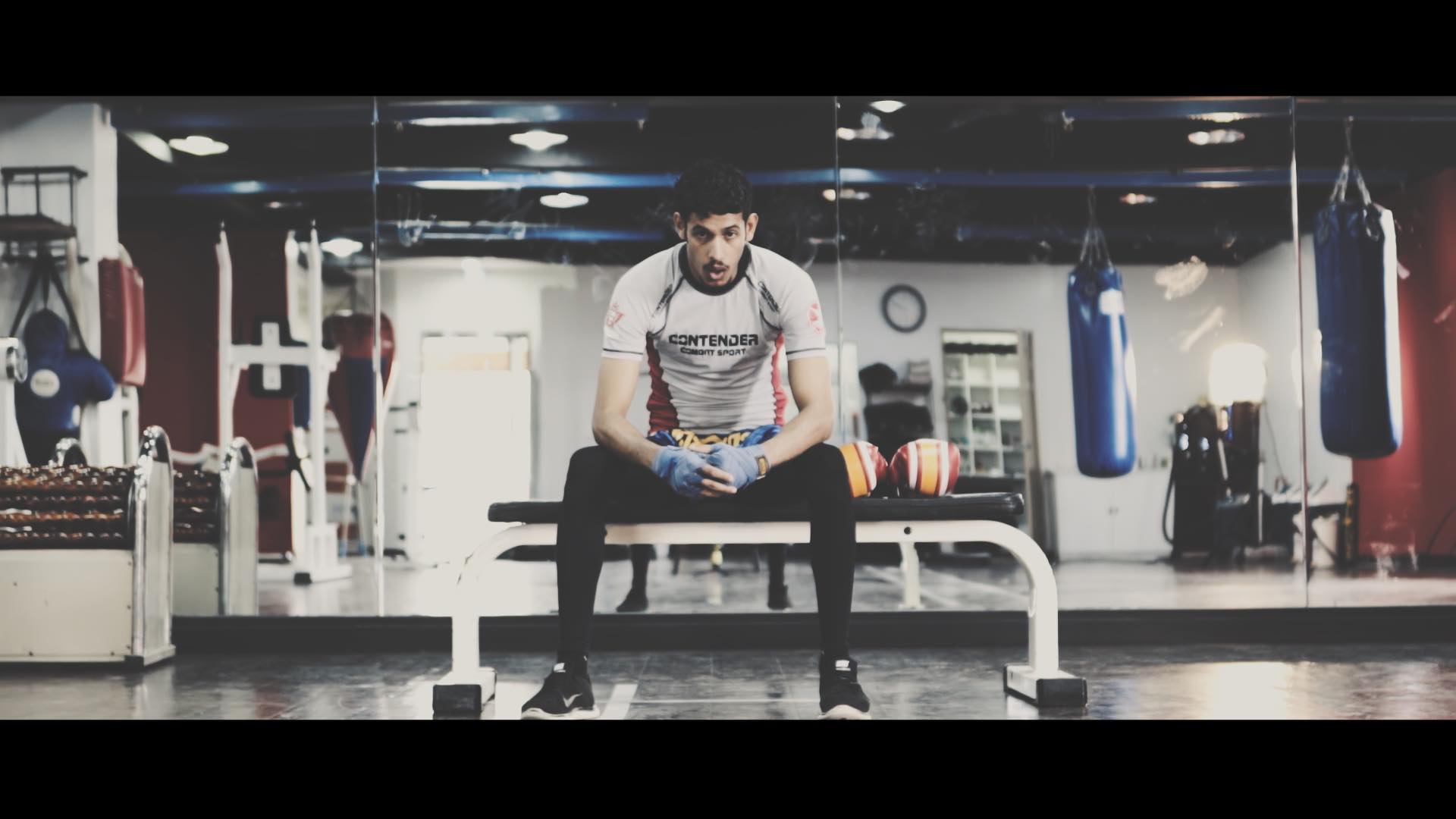Providing a Voice to the Voiceless in the Korean Refugee Debate: Interview with British Filmmaker Neil George
Written by Wilson Melbostad
For a good portion of 2018, headlines here in South Korea were dominated by news of a small group of around 500 refugees seeking asylum from war back in their home nation of Yemen. Opinions from seemingly all corners of Korean society were broadcast on social media and the national news channels, yet, as such events usually transpire, few were able to hear from the Yemeni refugees themselves on the circumstances that brought them here. Gwangju News sat down with local documentarian, Neil George, whose newest project, entitled Our Journey, attempts to give a voice to these individuals as they continue to work towards acceptance within Korean society.
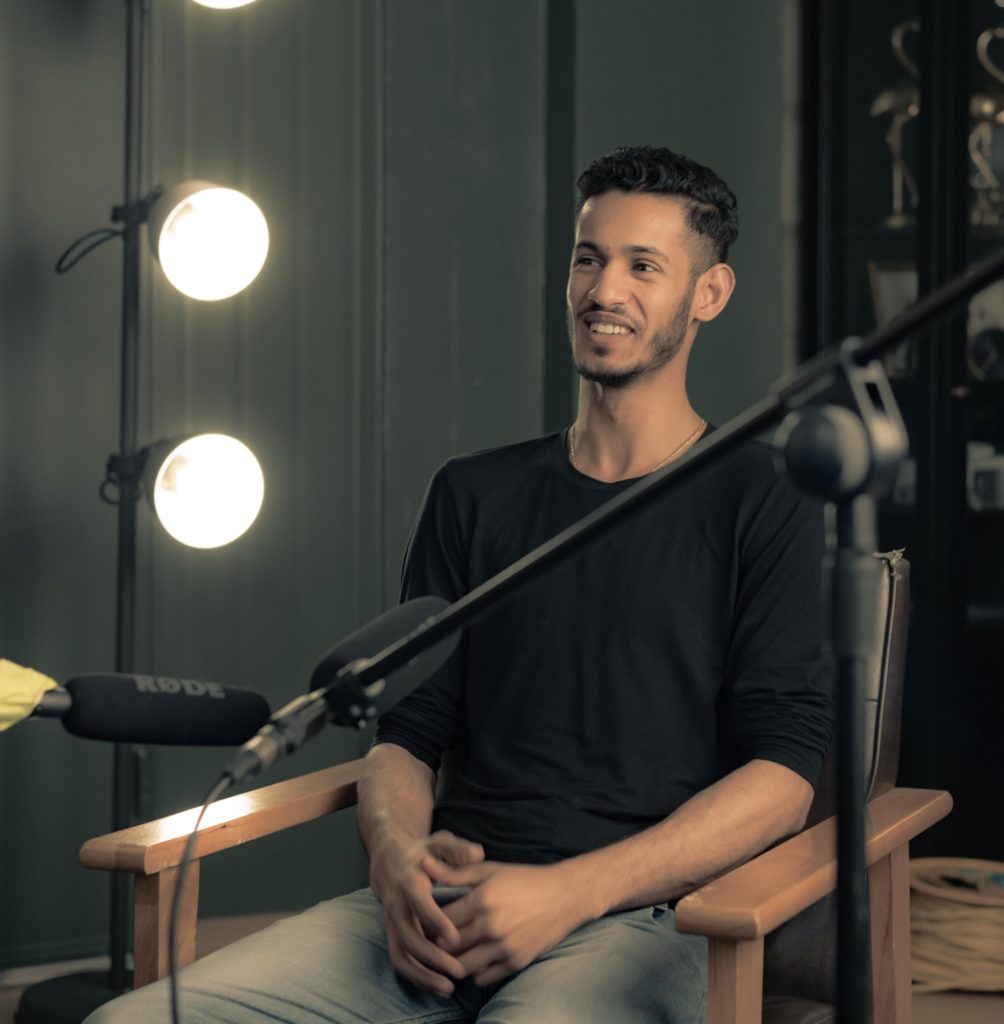
Gwangju News (GN): Please introduce yourself to our magazine! What is it that you currently do and where do you currently live?
George: My name is Neil George and I’m a film professor and director from England. I’ve been living in Korea since 2011 teaching film and producing documentaries with various content, mostly related to social and human rights issues.
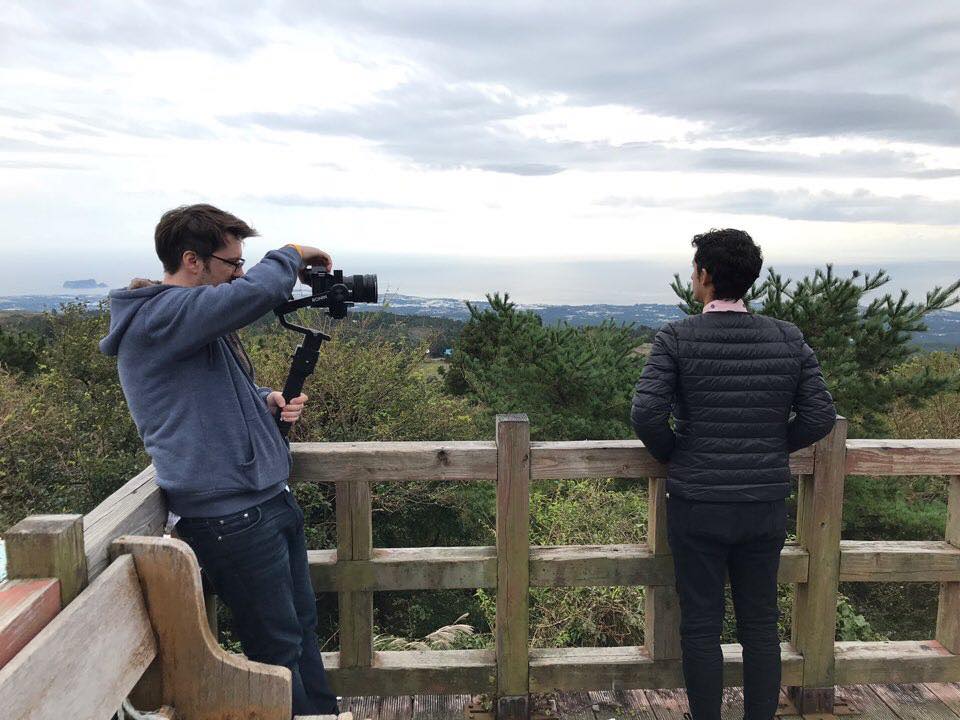
GN: How did you first come to Korea, and how long have you been living here? Also, what do you think of life here thus far?
George: I first came to Korea in 2005. I wanted to travel around Asia and just ended up in Korea teaching English as a foreign language, but I didn’t really expect to stay that long. However, I really liked the country, people and the food and became very interested in the culture and history as well. The biggest stumbling block was work, as I was only interested in working in film or TV because that was what I did back in England. So after about a year I returned to England to continue working in TV production and completed my MA in broadcasting in 2010.
Then through the various connections I had made in Korea, I fortunately got offered a job teaching documentary and editing at a media university, so I moved here again in 2011.
Since then I’ve been teaching film production as well as producing various films, mostly related to social and human rights issues, as that was what I did in England. Life has had its ups and downs since 2011, but overall, I live quite comfortably here and enjoy making films.
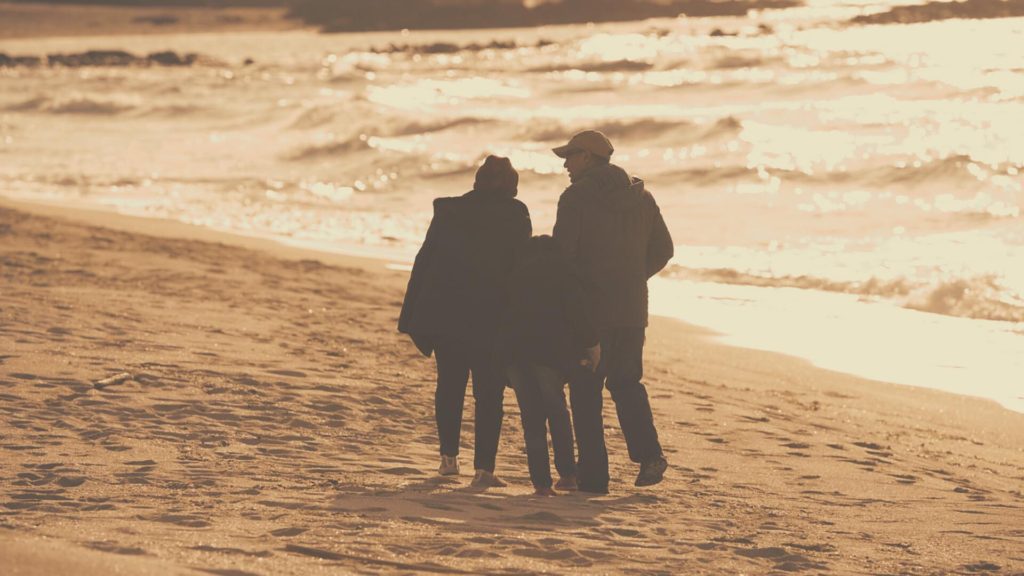
GN: What initially inspired you to pursue a career in film? Have you made previous films in Korea before covering the topic of the Yemeni Refugees?
George: I studied photography at university and got interested in film in my final year, which naturally took me into working in TV production. I love listening to people’s stories and exploring issues, so I was naturally drawn to documentary filmmaking. Since living in Korea I’ve produced and edited 5 feature-length films/documentaries, mostly related to social issues, including While They Watched, a film about North Korean defectors; The Story of Sohn Kee Chung, a biographical piece about the Korean marathon runner who won a gold medal at the 1936 Berlin Olympics; and After the Sewol and Crossroads, two feature documentaries looking at the Sewol ferry tragedy and its aftermath. I’m now producing a documentary, as well as a series of short films, in association with the UNHCR, about the Yemeni refugees who came to Jeju in early 2018 which caused quite a national uproar.
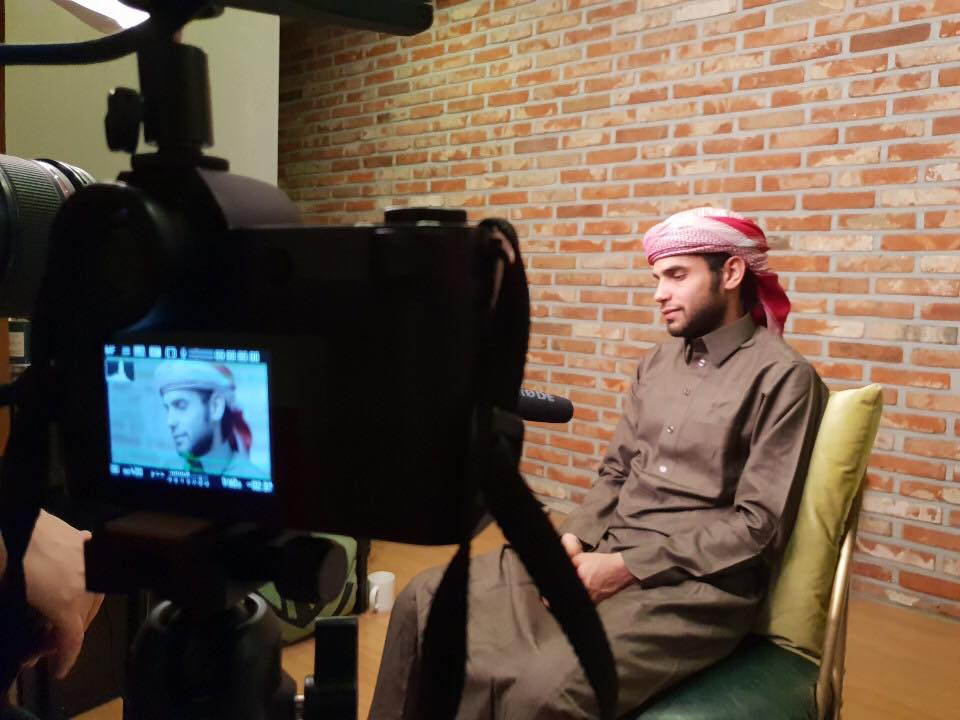
GN: Speaking of which, can you tell us about the inspiration for the Our Journey film series, your most recent project involving the Yemeni refugees who came to Jeju?
George: The main inspiration behind the films was trying to understand the situation more and wanting to listen to the refugees’ stories in more detail. I felt this was missing from the local media when they first came into the country and I wanted to find out more. A fellow filmmaker, Hankyul Kim, asked me to collaborate on a project exploring this in more detail. We initially decided to go to Jeju in search of the refugees and listen to their stories. Fortunately, due to my previous films about the Sewol tragedy, I had a lot of activist contacts who put us in touch with the right people and after listening to a few of the refugees we could see that they weren’t being represented and their stories weren’t being told. I felt extremely disappointed about this, especially after everything I had seen during the 2016–2017 candlelight protests, where the Korean people came together to fight for truth, justice, and equality. I wanted to try and give voice to some of the refugees, so people could have a better understanding of them as well as the situation in Yemen that forced them to flee.
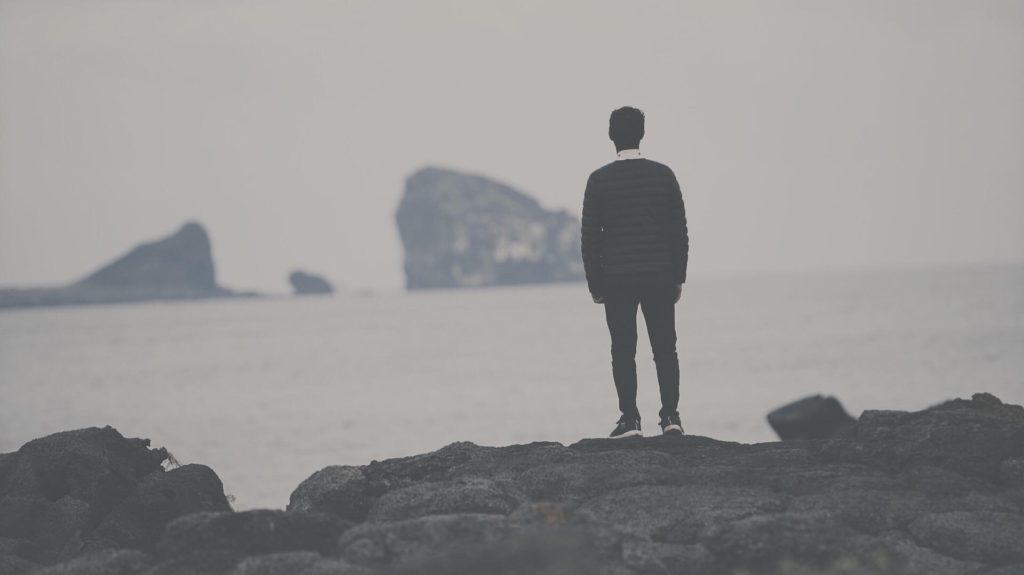
GN: Your films seem focused on personal stories from the Yemeni refugees who landed on Jeju. What was your reasoning for making the films so personal, and can you briefly share with us some of your favorite stories that you’ve acquired through the filmmaking process?
George: I wanted to focus on certain words that we all take for granted in life: hope, passion, and family, for example. These words might have various meanings to us all, but we understand their core values. By focusing on them, I wanted to allow the refugees to use my films as a platform to voice their thoughts. I met with each person several times and discussed the idea and how to do it, and from those meetings, I wrote each script.
Another reason was that I felt the whole situation was complicated, needing a lot more time and resources to cover the issues raised. The initial idea was to share the thoughts of the refugees, how they feel, and why they came to Jeju. Even this was a formidable task, so I settled on narration-based short films that give voice to the refugees and in which they share their thoughts and feelings about their lives, why they came to Jeju, and how they feel about their current situation.
In order to understand the bigger picture of Yemen’s civil war, we must listen to the voices of those affected by it, and actually, I would really like to tell each refugees’ story, as they are all completely different. But due to budget and time, it’s an impossible task, so I settled for those who wanted to tell me their story.
I have now met and spoken to over 30 of the refugees, which is not that many considering that over 500 arrived in 2018. One thing I came to understand was that none of them chose to come to Jeju; it was a final resort. They just didn’t have anywhere else to go, and given their situation, I would have probably done the same thing. I would hope for understanding from the people of the country I landed in and some empathy to what was happening in Yemen. Unfortunately, they didn’t get this, and that for me was the most disappointing part of the whole Yemeni refugees’ issue.
The positive element to this issue for me personally is that I have come to meet some of the nicest people and feel very fortunate to call them my friends, whom I will surely visit in Yemen once the war is resolved and they are back with their families.
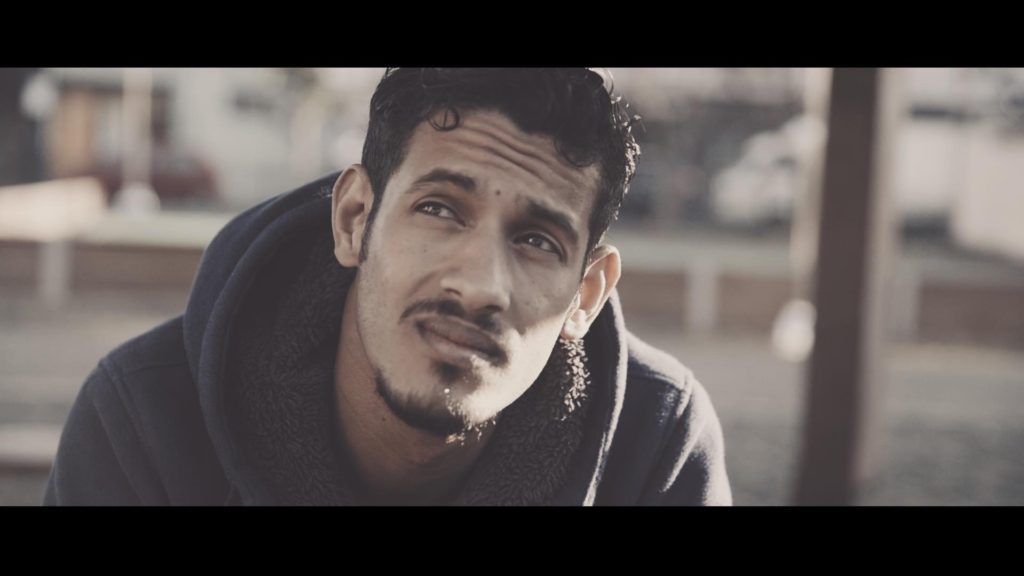
Screen shot taken from the film Hope.
GN: What is the main message you’d like to convey to Korean society (or beyond) through your films?
George: Allow me to take you back for a moment to the Sewol ferry tragedy in 2014, when the entire nation was shocked to its core as to how and why that kind of tragic disaster had been allowed to occur. The people stood up at that point and fought for change. The Sewol families fought for basic human rights to be improved, and it took them several years before we saw any kind of justice.
The sad case we have seen with the Yemeni refugees was that it brought to light the extent to which Korean society is still insular. People took to the streets in protest about a small group of refugees with no understanding of the reasons behind their presence or a desire to find out. Unfortunately, we see these kinds of reactions all around the world, but as my focus for the stories lies here, I cannot help but feel disappointed with this kind of attitude and reaction.
Similar to the Sewol tragedy, the information from the media was confusing, and so my only way to ascertain actual facts was to go directly to the source. In doing so, we discovered the problems at the heart of it all, and so my main message has become that of understanding.
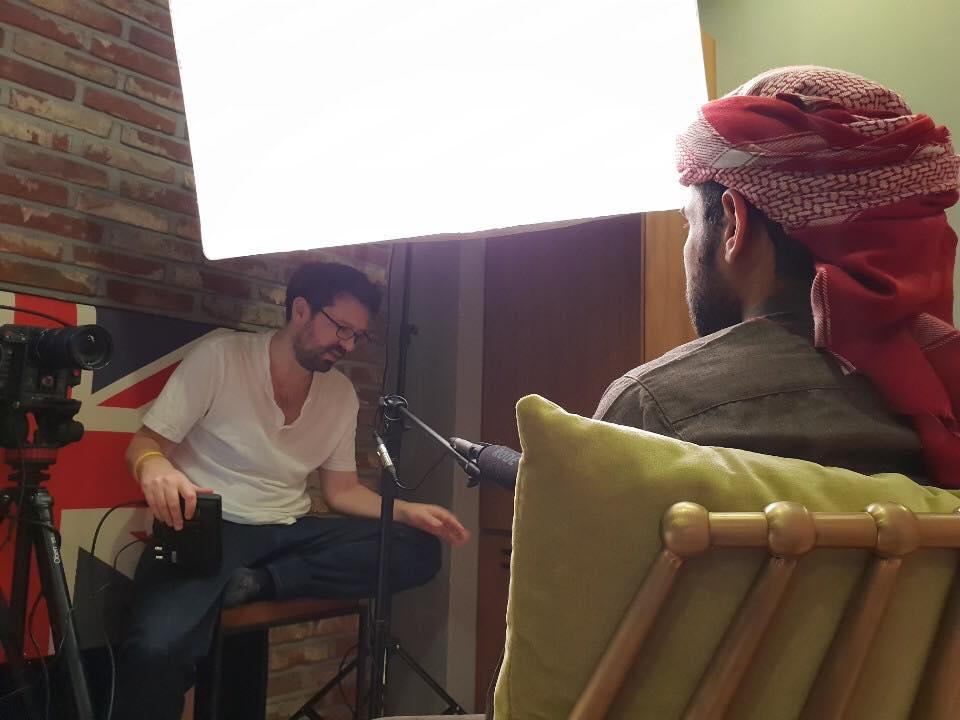
Interview with one of the Yemeni refugees for the documentary Gone.
Consider placing yourself in their situation, and then think about how you would act. A civil war has been raging for a long time, with friends or family members being killed. What would you do to be safe? You would do anything to survive and keep your family safe. You may not agree with their decision to escape the war, but you should not judge when you don’t know the whole story. Open your ears, eyes, and minds, and listen to them, as in doing this, it will open the conversation, which in turn can lead to a much better understanding. That is, at the end of the day, all they are looking for. They don’t want charity or handouts; they want to be given the opportunity to fend for themselves and support their families. Once this war is finally over, who will be the ones left to rebuild the country? More than likely, it will be the countless number of refugees who fled the war!
I believe a little understanding and compassion isn’t much to ask for, given that their home country of Yemen is currently being destroyed in what some call an illegal war and has been classified as the world’s worst humanitarian crisis. I think the world needs to shine a bigger light on this tragic situation before it gets beyond hope.
Photographs courtesy of Neil George
The Author
Wilson Melbostad is a human rights attorney hailing from San Francisco, California, who is proud to call Gwangju his second hometown. Wilson is a lecturer at Chonnam National University who, in his spare time, works on various pro bono legal cases throughout the country. Wilson also enjoys breakfast food to the point where he feels comfortable putting such information in his bio.



